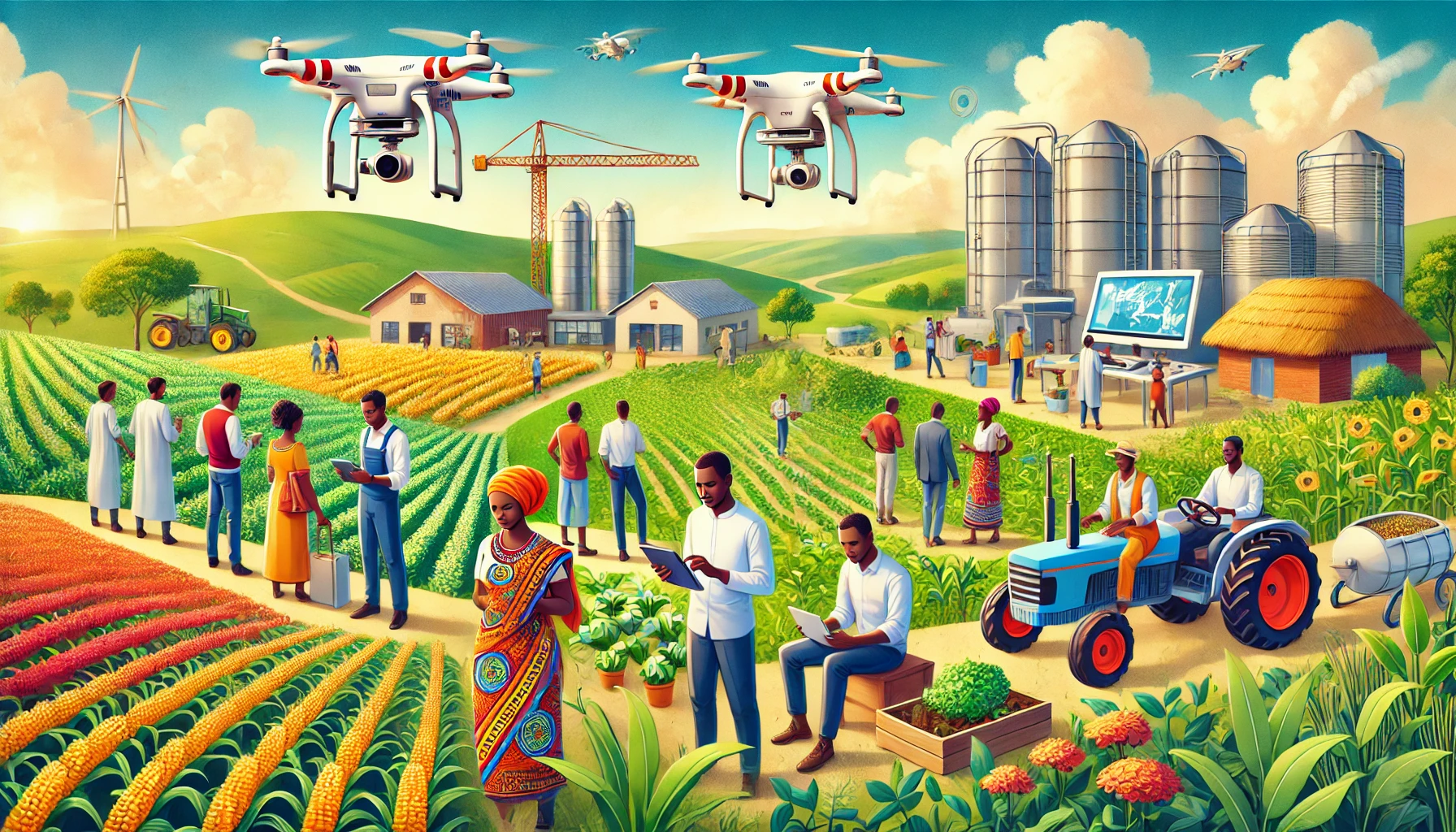FAO Secures $68 Million from GEF to Tackle Global Environmental Challenges
The $68 million from the GEF Trust Fund, the Least Developed Countries Fund (LDCF), and the Global Biodiversity Framework Fund (GBFF) will be leveraged with an additional $273 million in co-financing.

The Food and Agriculture Organization of the United Nations (FAO) has helped 22 countries unlock $68 million in financing from the Global Environment Facility (GEF) to combat pressing environmental challenges, including biodiversity loss, groundwater management, climate change, land degradation, and pollution. These projects, approved by the GEF Secretariat and Councils, aim to drive transformational changes in agrifood systems while addressing global sustainability goals.
The $68 million from the GEF Trust Fund, the Least Developed Countries Fund (LDCF), and the Global Biodiversity Framework Fund (GBFF) will be leveraged with an additional $273 million in co-financing. The funding will enhance biodiversity conservation, promote sustainable land and water management, reduce hazardous chemical use, and support social inclusion.
A Year of Breakthroughs for Environmental Sustainability
FAO Director-General QU Dongyu emphasized the critical role of these projects in global environmental efforts. "The approval of this batch of projects caps a year of environmental summits highlighting the urgent need for finance to transform global agrifood systems," he said. "We are committed to supporting countries in meeting their biodiversity, climate, land, water, and pollution goals through innovative agrifood systems solutions aligned with the Four Betters framework."
Carlos Manuel Rodríguez, CEO and Chairperson of GEF, noted, "These projects will change the way we produce food, fuel, and fiber to address global environmental crises. They also strengthen coherence between agriculture and environmental sectors, empowering countries and communities to tackle food insecurity, poverty, and environmental challenges effectively."
Small Grants Program: Local Solutions for Global Impact
As part of the funding, $19 million was allocated for FAO’s first activities as a new implementing agency for the Small Grants Program. The initiative focuses on co-designing and delivering locally led projects in 14 countries: Bosnia and Herzegovina, Chile, Cook Islands, Cuba, Guyana, Indonesia, Jamaica, Kenya, Marshall Islands, Nicaragua, South Sudan, Tajikistan, Uganda, and Venezuela.
The program will restore 20,000 hectares of land, improve sustainable practices across 350,000 hectares, and benefit 45,000 people. It prioritizes innovation, scalability, and the inclusion of women, Indigenous Peoples, and youth.
Biodiversity Projects: Safeguarding Ecosystems
Five GBFF-funded projects will enhance biodiversity conservation in agrifood sectors. These include restoring 13,000 hectares of landscapes, managing 500,000 hectares of protected areas, and improving sustainable practices on 2.4 million hectares of land and sea.
- Laos: A $1.7 million project to restore ecosystems and promote biodiversity-friendly One Health practices.
- Papua New Guinea: A $6.4 million initiative to enhance climate resilience through integrated landscape management.
- Solomon Islands: $2.4 million for community-led conservation of key biodiversity areas.
- Cuba: A $3 million project to address unsustainable fishing and agriculture in Northeastern regions.
- Nepal: A $1.3 million initiative to conserve endangered freshwater fish using ecosystem-based fisheries management.
In Indonesia, an $8 million project will conserve and restore 91,000 hectares of ecosystems, benefiting species like the Javan Leopard and Sumatran Elephant while mitigating 6.2 million metric tons of greenhouse gas emissions.
Land and Water Management: Ensuring Sustainability
A regional initiative in Kenya and Tanzania will improve water security in the Mount Kilimanjaro region. With $7.8 million in GEF funding, the project will conserve 40,000 hectares of cloud forest and enhance sustainable groundwater use, benefiting 100,000 people.
In Liberia, a $5.1 million project will restore 25,000 hectares of land and promote sustainable rice production practices, mitigating over one million metric tons of greenhouse gas emissions and benefiting 60,000 people.
Chemical Management: Promoting Bioeconomy and Circular Practices
Under the iCOAST program, FAO will assist Vanuatu in sustainable tourism by channelling $4 million to restore 32,000 hectares of degraded ecosystems and benefit 246,000 people.
Through the FARM+ initiative, $9.6 million will support Gambia in reducing agrochemical use and transitioning to climate-resilient agricultural practices. This will restore 10,000 hectares of land, improve practices on 120,000 hectares, and mitigate 15,000 metric tons of greenhouse gas emissions.
Record Growth in FAO-GEF Partnership
FAO’s collaboration with GEF has reached unprecedented heights in 2024, with $440 million approved across work programs. Additionally, 13 projects totalling $14 million in GEF resources are advancing global environmental reporting commitments.
Since 2006, the FAO-GEF partnership has supported 141 countries, securing $1.9 billion for projects aligned with the Sustainable Development Goals (SDGs). This collaboration underscores FAO’s pivotal role in driving agrifood systems transformation to address global environmental and social challenges.









